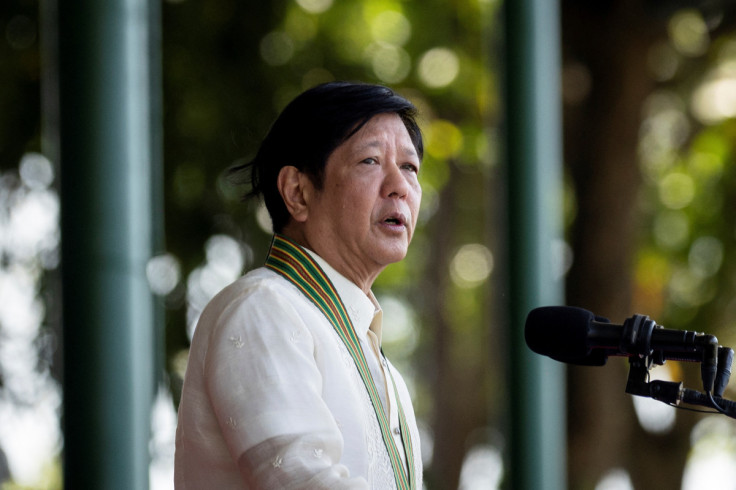China Blasts Philippine President For 'Playing With Fire' Over Taiwan Election Statement

KEY POINTS
- Beijing wants a "responsible response" from Manila regarding Marcos Jr.'s message
- The Chinese foreign ministry said Marcos Jr. was sending the "wrong signal"
- Philippines was among 5 ASEAN countries that reaffirmed commitment to the One China policy
Beijing criticized Philippine President Ferdinand "Bongbong" Marcos Jr. for congratulating Taiwanese president-elect Lai Ching-te for his victory in the self-governing island's weekend election and emphasized that Philippines should "earnestly abide" by the One China policy.
"The remarks of the Philippines' President gravely violate the one-China principle and the communique on the establishment of diplomatic relations between China and the Philippines," Chinese foreign ministry spokesperson Mao Ning said at a Tuesday press briefing.
She revealed that the Chinese government has summoned Philippine ambassador to China Jaime Florcruz "to lodge serious demarche" regarding Marcos Jr.'s congratulatory message for pro-sovereignty leader Lai.
Mao added that Beijing wants Manila to "present a responsible response" for the president's statements as it was sending the "wrong signal" to groups that champion Taiwan independence.
Marcos Jr. wrote in a post on X (formerly Twitter) Monday that the Philippines was looking forward to closer collaboration with Taiwan.
On behalf of the Filipino people, I congratulate President-elect Lai Ching-te on his election as Taiwan's next President.
— Bongbong Marcos (@bongbongmarcos) January 15, 2024
We look forward to close collaboration, strengthening mutual interests, fostering peace, and ensuring prosperity for our peoples in the years ahead.
Beijing said the Philippines should "refrain from playing with fire on the Taiwan question," adding that the Southeast Asian nation, which has a long history of territorial disputes with China, should "earnestly abide" by the One China policy.
Despite recent incidents in the South China Sea between the Chinese Coast Guard (CCG) and Philippine boats, Manila was among five members of the Association of Southeast Asian Nations (ASEAN) that reaffirmed commitment to the One China policy after Taiwan's presidential election.
There have been signs of hesitance among some Southeast Asian nations to comment on the Taiwan issue, but some observers noted that the Marcos administration, unlike the previous government, has become "increasingly vocal" about the China-Taiwan conflict.
International studies expert Rommel Banlaoi said in a Wednesday interview with CNN Philippines' The Source that the Philippine leader could have just maintained silence or "maybe frame a more politically sensitive statement" since Manila still recognizes the One China principle.
On the other hand, De La Salle University international studies professor Renato de Castro said Marcos Jr., as a sovereign head of state, is "entitled" to congratulate a democracy like the Philippines, adding that that he believes there was no violation to Manila's commitment to the One China policy.
On Beijing's advice for Marcos Jr. to "read more" about the Taiwan issue, de Castro said it was an "insult" to insinuate that the Philippine leader was "ignorant" about it. He added that China had "no right to impose one interpretation of the One China policy."
Meanwhile, Lai Ching-te expressed gratitude to Marcos Jr., saying he "deeply" values the "enduring friendship" of Taiwan and the Philippines, and he was looking forward to strengthening people-to-people ties "while championing democracy" in the region.
Tensions between China and the Philippines have been rising in recent months following multiple incidents in the South China Sea.
Following a near-collision between a CCG ship and a Philippine Coast Guard (PCG) vessel near the disputed Second Thomas Shoal in November, a maritime expert said Manila shouldn't allow itself to be provoked into making "the first move" as it will give Beijing "any excuse" to carry out a "disproportionate" response.
© Copyright IBTimes 2025. All rights reserved.






















